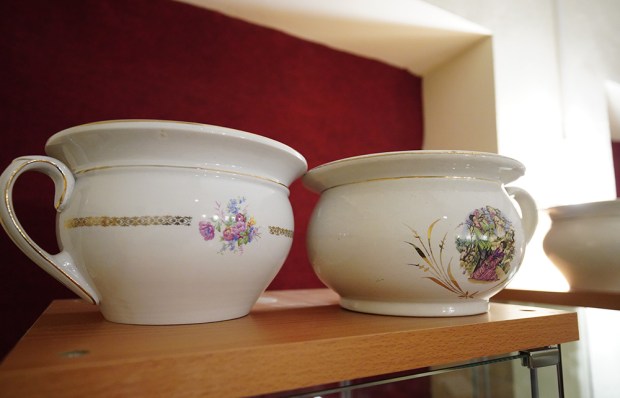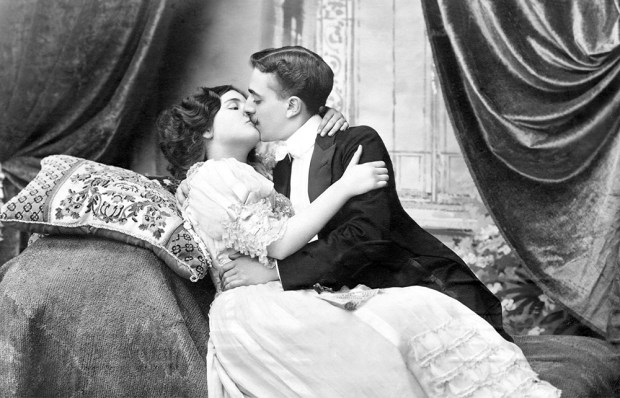I’m rubbish at public speaking and detest it. Even the thought of reciting an English poem of my choice at a Burns Night Supper cast a long shadow beforehand, in spite of the strong probability that everyone at the table would be blootered when the time came for me to get to my feet. A further problem was: which poem should an Englishman choose to read at a celebration of Scottishness, if not of Scottish nationalism? Should it perhaps be an English riposte? Or would something amiable and irrelevant be more politic? A comic poem maybe? A comic poem in a comic dialect? Lewis Carroll? ‘’Twas brillig’, and so on? On the train up I took a doorstep anthology and speed-read English poetry, from Thomas Traherne to Ted Hughes, from one end of England to the other, unsuccessfully.
The males at the dinner wore the kilt, sporran, sock flashes, sgian-dubh (sock dagger) and ghillies. But they were a macho crowd even without the proud tartan. The first pre-supper drinks conversation I had was with a third-generation communist who demanded to know how we in England have allowed such an effeminate individual to take control of the party of Labour? Does anybody honestly expect a working-class Scotsman to vote for that very antithesis of a working man; a man with hands like those? This broad-shouldered giant in a skirt was genuinely puzzled. Moreover, he seemed to be blaming me personally. I enjoyed his assumption that I was a serious-minded person of the left.
Supper was announced. Twelve of us sat down around the candlelit dining table. The meal commenced with the traditional and very tasty cock-a-leekie soup. This was followed by haggis, neeps (turnip) and tatties (potatoes). The haggis was ceremoniously borne in from the kitchen on a silver platter. One of the men stood and gave the ‘Address to a Haggis’, which is a Burns poem. He had the verses off by heart and recited them with passionate intensity. The address began: ‘Fair and full your honest face/ Great chieftain of the sausage race.’ At the words: ‘Trenching your gushing entrails bright’, he dramatically flourished the knife and sliced the haggis in two so that we might see them.
After that another chap stood up and gave the Toast to the Lassies. Burns fathered 13 known children by five partners and has 600 living descendants. He loved the lassies and wrote of sex and love with frankness and simplicity. This guy’s toast to the lassies was a bantering but ultimately gallant eulogy to the female sex. Then one of the lassies stood and made a formal reply, the gist of which was that the ladies thanked him for his kind sentiments and that, taken all in all, we chaps aren’t so bad ourselves. One doesn’t often see gender difference formally celebrated these days, and I surmised what an English Burns-type Supper would be like. Would the Toast to the Lassies, for example, be given by the women to the men, telling them how useless they are?
We swilled down claret and whisky in incalculable amounts. The climax of the supper was a recital of ‘Tam o’ Shanter’, an epic Burns poem written in a mixture of English and Scots dialect. On the way home from the pub one night, drunken Tam sees a wild party going on in a church. Witches and warlocks are dancing and throwing off their clothes to tunes played by the Devil on a fiddle. Taking a fancy to a pretty witch dancing in a ‘cutty-sark’ (a short skirt: hence the name of the famous Scottish-built tea clipper) Tam shouts, ‘Weel done, Cutty-sark!’. The witches immediately give chase and Tam makes for the nearest river, aware of a supernatural law preventing witches from crossing running water. The poem thrilled me, even though I understood only about two thirds of it.
Other Burns poems were then recited by other guests, and now it was the Englishman’s turn to contribute a poem. By this stage it had dawned on me that I had grossly misjudged the essence of a Burns Night Supper. There was nothing remotely nationalistic going on; it was simply a fond celebration of Scotland’s most dearly beloved poet. But I went ahead anyway with the satirically nationalist poem I had chosen one minute before we sat down: ‘The English Are So Nice’ by D.H. Lawrence. (‘The English are so nice/ so awfully nice/ they are the nicest people in the world.’) Given the unexpected absence of Scottish nationalist feeling, my choice of poem was, in the event, absurd. But my other guess was fortunately spot-on: by that stage we were all so gloriously and utterly pissed that Lawrence’s acidic little poem was received with uncomprehending but generous applause, and we moved on to the singing.
Got something to add? Join the discussion and comment below.
Get 10 issues for just $10
Subscribe to The Spectator Australia today for the next 10 magazine issues, plus full online access, for just $10.
You might disagree with half of it, but you’ll enjoy reading all of it. Try your first month for free, then just $2 a week for the remainder of your first year.















Comments
Don't miss out
Join the conversation with other Spectator Australia readers. Subscribe to leave a comment.
SUBSCRIBEAlready a subscriber? Log in